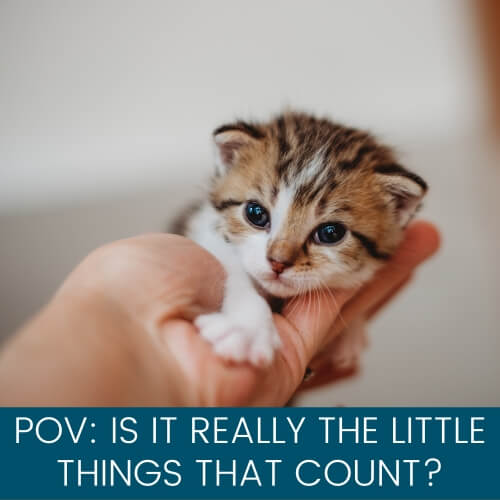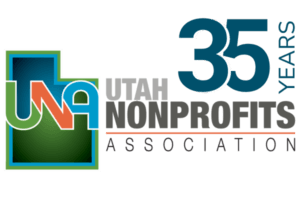 By Jill Bennett
By Jill Bennett
Is the phrase, "It's the little things that count," any more than just a cliché? If you're pulled in too many directions to read this entire post, let me give you the Too Long/Didn't Read version (aka, TL/DR): I believe the saying is more than just another platitude—but in a way that might surprise you.
We are all too familiar with the term "microaggressions" and the real impact they have on people—a female physician is mistaken for a nurse, a Black man is followed by a security guard while shopping, an Asian woman is praised for her English despite growing up in the US. These "brief, everyday exchanges that send denigrating messages" to members of a marginalized group can cause real pain and hurt to our friends, neighbors, colleagues, and community-members.
This year, a new micro-term appeared on our airwaves, books, and websites. Microstress, according to the Harvard Business Review, is "caused by difficult moments that we register as just another bump in the road — if we register them at all." Manageable in the moment, these microstresses accumulate, unseen, until they combine to create a Gidget-worthy surfable wave that ripples through our day (or days) and capsizes our sense of wellness. We're often so conditioned to working through them that we don't notice our drained mental capacity or the impact on the people around us.
We've all had those days. You get stuck in traffic, arrive at work and log in to find 45 new emails since you cleared your inbox the night before, discover that you need to reboot your computer three times before 10:00 am, find that the deadline you thought was next week is really for 4:00 pm today, crush it to finish the project (perhaps rebooting a couple more times along the way), only to finally arrive home to a sink full of dishes that someone else was supposed to manage, and a weary child who'd felt excluded at recess.
You might dismiss each of these as first-world problems, and you'd be right and wrong in the same breath. But dismissing all of them can create a sense of feeling overwhelmed, burned out, or just crabby. While they have the same nasty impact on our health as regular-sized stress (increased blood pressure and heart rate as well as metabolic changes), they don't bring us any clarity on why we feel so stressed. And it's that very clarity—I am being stressed by this thing—that evokes our higher-order protective mechanisms.
We're taught that focusing on those little things that make us happy—like being grateful for what you have—will be the cure for what ails you. But it turns out that these practices only increase your ability to endure more stress. And that is most definitely not good.
According to Rob Cross, the Edward A. Madden Professor of Global Leadership at Babson College, the solution is to "structure your life in a ways that not only reduce microstress but also improve your overall well-being and your relationships with friends, family members, and colleagues." Learn how to say no and consciously push back on microstressors as they arise. Be conscious of the impact you have on others. Find support in the people who support you.
And as for microaggressions, let's all agree to memorize the microinterventions prescribed by Dr. Diane Goodman, a social justice and diversity consultant.
Ask for more clarification: "Could you say more about what you mean by that?" "How have you come to think that?"
Separate intent from impact: "I know you didn't realize this, but when you ______ (comment/behavior), it was hurtful/offensive because ______. Instead, you could ______ (different language or behavior)."
Share your own process: "I noticed that you ______ (comment/behavior). I used to do/say that too, but then I learned ______."
I think it may not be the little things after all. It's the very little things—the microthings—that matter. And for all the micro- and macro- things that you need help with? UNA has a new mental health membership benefit that includes four free (!) therapy sessions.
